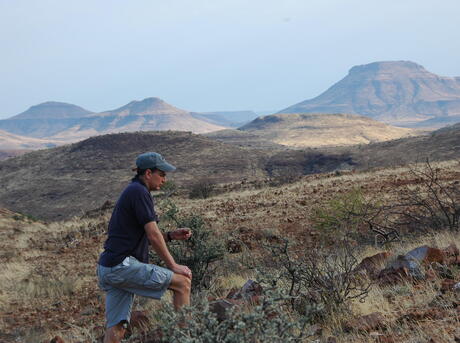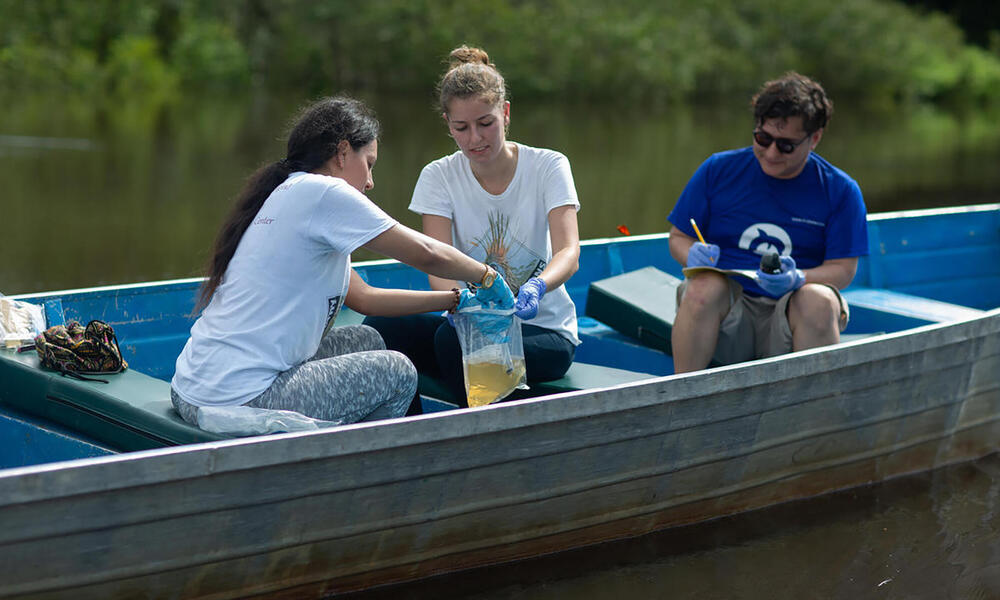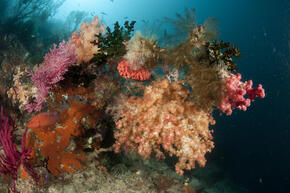WWF’s scientists partner with conservation actors around the world to answer critical questions about what works in conservation and why. Drawing on different scientific disciplines, participatory approaches, and systems thinking, our approach to monitoring, evaluation, and learning is rooted in collaboration and guided by the critical need to invest in conservation solutions that deliver positive results for both people and nature. Not only does our work aim to generate evidence to inform conservation, it seeks to draw insight from existing diverse knowledge sources and systems—including practitioner experience, traditional and Indigenous knowledge, and scientific research—to support program strategy, design, and implementation. We work with the environmental evidence and knowledge synthesis communities of practice to bring reliable and relevant evidence to bear to inform critical conservation decisions.
WWF scientists have developed information, tools, and methods in collaboration with the conservation community as well as linked sectors such as health, environmental management, development, computer and data science, to support organizational monitoring. These resources and collaborations enable WWF to generate, synthesize, and deliver evidence-based insights on critical topics—such as community-based conservation, governance of protected and conserved areas, and nature-based interventions. In particular, we work to harness technological innovations such as remote sensing, artificial intelligence, and data science capacities to support conservation actors to efficiently assess change.
Impact Evaluation Critical for the Future
WWF scientists believe that impact evaluation is critical to the future of conservation science. Leveraging our long-standing field presence around the globe, our extensive network of respected scientists, and a variety of collaborative relationships with organizations, governmental agencies and academic experts, WWF uses state-of-the-art methods to study key conservation strategies and test their claims. By rigorously documenting the biological and social effects of each strategy, explaining variation in their outcomes and, identifying successful strategies, WWF scientists hope to identify the keys to successful conservation.
Evidence-based Approach
Through our work, we systematically measure the impact of our efforts by comparing project sites against parallel “control” sites outside project areas. This evidence-based approach tracks projects over time and helps determine why some strategies are successful and others are not, encouraging more tailored solutions instead of one-size-fits-all strategies.
WWF is initially applying this method in the Coral Triangle and Namibia, and in our work related to forest certification. Our work seeks answers to tough questions:
- How has the creation of marine protected areas affected impoverished local communities and coral reef diversity?
- Which economic and environmental factors can lead to successful community-run conservancies?
- When and how has certification of forests helped secure the biodiversity of those systems?



 Gabby Ahmadia
Vice President, Area-Based Conservation, Oceans
Gabby Ahmadia
Vice President, Area-Based Conservation, Oceans
 Sam Cheng
Director of Conservation Evidence, Global Science
Sam Cheng
Director of Conservation Evidence, Global Science
 Shauna Mahajan
Lead Social Scientist, Global Science
Shauna Mahajan
Lead Social Scientist, Global Science
 Dave Thau
Global Data and Technology Lead Scientist, Global Science
Dave Thau
Global Data and Technology Lead Scientist, Global Science
 Nasser Olwero
Director of Information Science, Global Science
Nasser Olwero
Director of Information Science, Global Science
 Pablo Pacheco
Global Forests Lead Scientist, Global Science
Pablo Pacheco
Global Forests Lead Scientist, Global Science
 Althea Skinner
Director, Inclusive Conservation - Impact, Learning, and Partnerships
Althea Skinner
Director, Inclusive Conservation - Impact, Learning, and Partnerships
 Dominic Andradi-Brown
Lead Marine Conservation Scientist
Dominic Andradi-Brown
Lead Marine Conservation Scientist